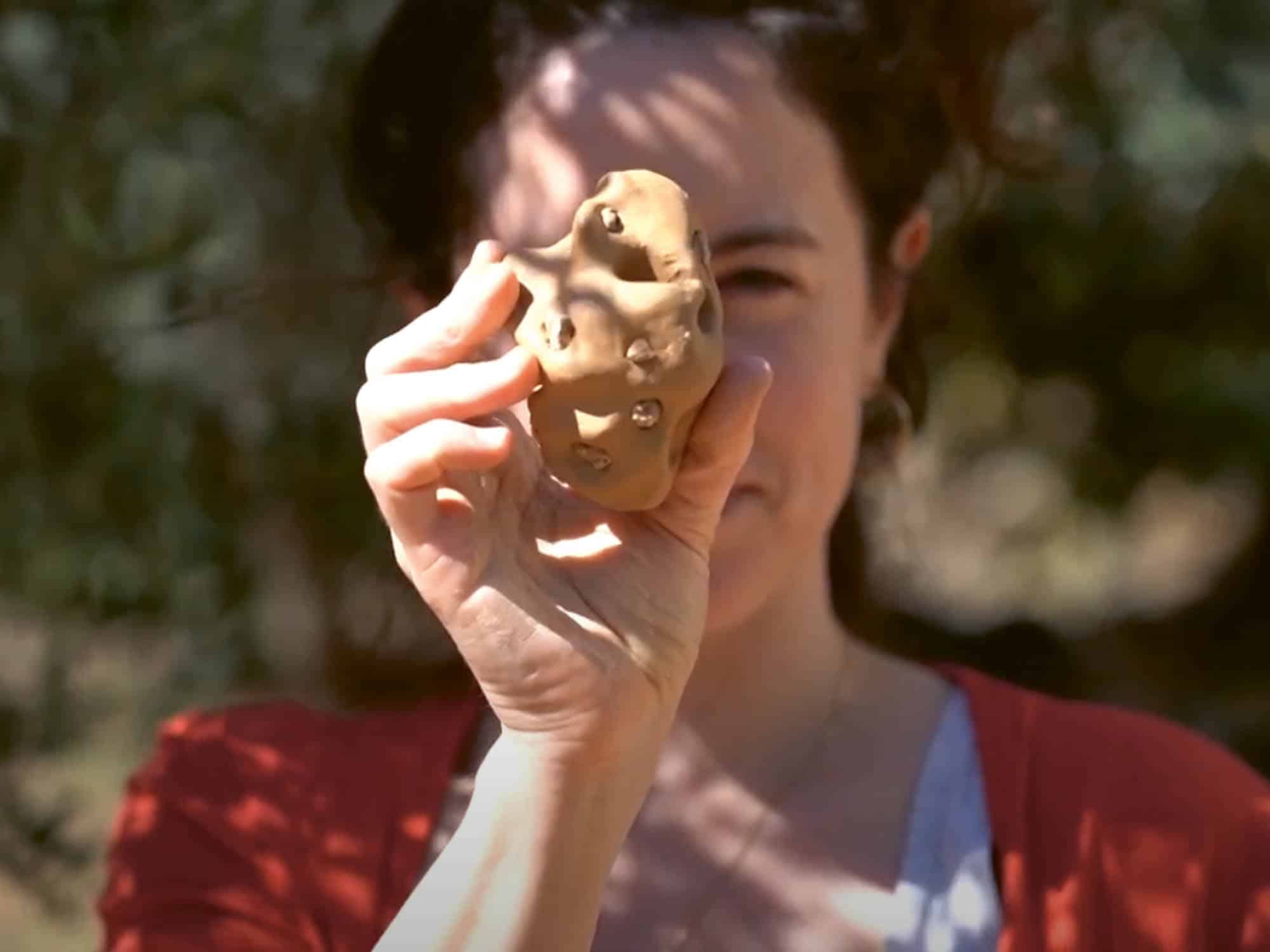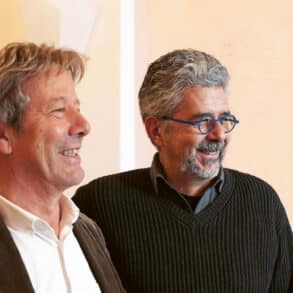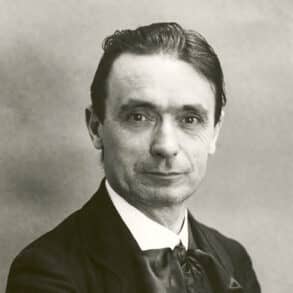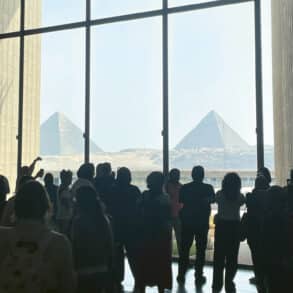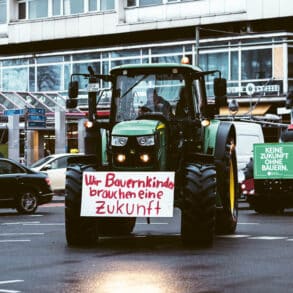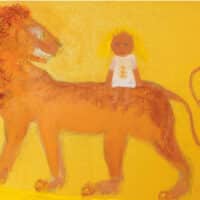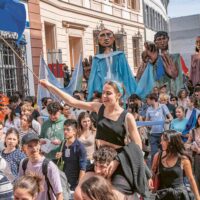Haneen Sabbah, a Muslim Palestinian mother from Gaza, and Miriam Elizabeth Turmalin, an Israeli with Jewish and Christian roots, have found friendship and purpose through peace work. This interview is an adaptation of a podcast episode on That Good May Become.1
What brought you to work together?
Hanneen I was teaching Arabic online a few years ago, and Miriam started learning with me. Beyond identities and where we are from, what made our connection special was Miriam’s heart—her human heart that is full of love and compassion. From that place, I felt safe with her. Then violence was everywhere. Breaking through in front of our eyes, on our screens. I began asking, “What can we do to stop this?” With so much polarization happening, it was clear that I should not be part of that separation. It’s really related to the person that you don’t want to separate from, and we did not want to separate from each other. We were creating a vision together that in order for peace to come, we need each other. Without being with each other, it cannot be. Without freedom and equality for all, it cannot be. It’s not about Israelis and Palestinians—it’s a wider thing, a human issue. If we allow this to happen to Gaza, then tomorrow, it will be in a different place, and yet another the day after tomorrow.
Miriam My grandparents were a part of the Zionist movement. They came here and started inhabiting the land. I am very sorry for everyone who lost their homes, and I can see all that pain. Alongside that, I feel the blessing of being home again. I say this for myself, but I also know many Jewish people relate to this place as home. And it’s not justifying the way we came, not at all. It’s just that I feel at home here more than anywhere else. This is my home and I acknowledge that it’s a home for others, for the Palestinian nation. I am looking for ways we can be here, at home, together, because I don’t see any other future.
Twenty years ago, I went into a shop, and there was a blonde guy in the shop. I asked him where he was from because he didn’t look local. He said, “Guess.” In the end, he said, “I’m Palestinian. I’m a refugee.” He shared the story of how he hates Israel and Israelis. And I was wondering: what shall I do now? Then he asked, “So, where are you from?” I said, “Guess.” He couldn’t and then I told him, “I’m Israeli. Do you hate me now?” He looked at me and said, “How can I hate you? I’ve only met soldiers, and they killed my uncle.” He couldn’t see the human being, because they were all in uniforms, so how could he not hate? Suddenly, he saw a human whom he could connect to.
The Israeli story is that we need to protect ourselves by any means and that everyone just wants to kill us. We haven’t healed the wound and trauma of the Holocaust. I’m saying this with compassion for my own people and my nation. We need to heal our deepest wounds. Then I can meet the other, not as someone who wants to kill me but as someone who is just making their living and wanting a good life. It’s about our inner healing and taking responsibility. Let’s not go to the stories that are continuously feeding the separation. We can keep fighting forever, but it would cost many more lives and much more pain.
What can we do?
Miriam The best thing that people can do is to not take sides. This just continues the story, and we want to create a new story. That’s the past. The story of peace is a story in which both people have a home here. For that, we need to stop taking sides because that will not make us equal. We will always have someone to blame and someone to defend. It’s just ongoing. So, see the pain and the trauma of both people and see how we can take responsibility for healing not only the Israelis and Palestinians but ourselves and all humans. We have the responsibility to heal our trauma, to heal our wounds, to see our pain, to see the pain of each other.
What about anger?
Miriam It’s really a potent fuel. So when we feel it, it’s like our love, like something is very precious to us. We can see our anger and treat it with respect. And then ask: “Ok, what are we fueling? Am I fueling the hatred back? Or am I saying, “I care so much, I won’t allow you to treat me and my people this way,” and then I can direct it in a way that is constructive instead of making more destruction in another direction?
Hanneen Non-violence doesn’t mean to be weak and not act. It means that we choose what to fuel with our anger, our frustration, and everything that we are facing. We choose to build something that is constructive, that can bring a future, that can bring change.
Miriam We are co-creating various projects, including a joint online grieving ceremony for Israelis and Palestinians on October 7 to acknowledge the losses, pain, and destruction happening in our homeland. We are involved with Peaceweavers,2 a group of Palestinian and Israeli medicine women doing walking prayer and creating ceremonies for healing. There is a peace project called Satyam,3 a home where Israelis and Palestinians can meet for various activities of non-violence and training to support the growth and resilience of the peace community.
How do you work through feelings of anger, frustration, and perhaps even hatred while holding onto your vision?
Miriam We pray, dance, sing, hold grieving ceremonies, share, express, and hold each other in our pain.
Haneen We hold each other, and we pray. And I do activism work that brings awareness about the situation in Gaza. I recently joined a peace activation initiative where have a Zoom call every Friday to share and hear others. It supported me through these times—action based on love. Sometimes I am filled with helplessness and anger. I try to remember that each one has a role to play in ending this war, and it starts with me.
More An in-depth-interview with Haneen Sabbah can be found in the podcast Sounds of Sand (episode 87), April 20, 2024, “Cultural Stories and Mysticism of Gaza” on scienceandnonduality.com
Image Haneen and Miriam are co-creators of the project Satyam, a communal place in the Westbank to practice non-violence that was founded after October 7, 2023. (Filmstill from the Starnext-campaign.)
Footnotes
- The complete interview can be found in the podcast That Good May Become (episode 57) by Laura Scapaticci, April 16, 2024
- Project Peaceweavers
- Project Satyam: satyamhome.org and startnext.com/en/satyam

